In case you didn’t hear, an educational technology company recently registered the generic term “Microlearning” for a trademark. Industry experts were quite surprised by this announcement, as Cognota was too. There hasn’t been this much controversy about a generic phrase since Pat Riley trademarked Three-peat while coaching the Lakers!
When people see the Cognota platform, one of the things they like best is how it helps them move employee training from long eLearning courses to MicroLearning! It allows company leaders, top performers and subject matter experts (SME) to easily share knowledge with everyone in the organization via small, bite-sized chunks that are easy to digest. But since we may have to pay someone now for using this generic term, we are going to try and discuss this further without using the “M” word!

From 2000 to 2015, the number one focus of learning and development organizations was to move from instructor-led training to self-based eLearning. The primary driver was cost reduction, and while this has had some success, it has not consistently resulted in better employee performance. In the last two to three years, the impact of FAANGs (Facebook, Amazon, Apple, Netflix, and Google) has changed how employees want to learn, interact with content and communicate together. Short, easy to consume content is what people expect.
While learning management systems are evolving to “Netflix” style user interfaces and adding new features to better support informal learning, the content problem still remains. How do you move away from an L&D model that was created when instructional designers (ID) built the content, to one in which everyone can quickly and easily build and share content? The first step is to change the process and then to change your technology.
Instructional design remains a
critical concept in building effective training, but IDs have become a
bottleneck in the process. To move to the “M” word model, where any
employee can build content, you need to first eliminate the
instructional design bottleneck. With information changing faster than
ever, it has become impossible to transfer knowledge from SME to ID at a
pace that can keep up with training demands.
If you really want to create an
environment where any employee can create quality training, it needs to
be based on adult learning best practices. Rather than trying to teach
SMEs how to be IDs, or fighting the losing battle to get knowledge
transferred to IDs more quickly, why not change the ID process and make
it easy for SMEs to build effective training content quickly and easily?
Modify the process to guide SMEs, step-by-step, through the
instructional design process systematically instead of doing it for
them.
Second, you will need new tools where instructional design best practices are built into the workflow for SMEs. Specialized eLearning authoring tools, which build highly interactive SCORM courses, are not designed for this. They claim they can “do” this, but the reality is that these tools are not usable by the average employee. User-generated content is today created in a variety of tools, including video, audio, documents, spreadsheets, PowerPoint, etc. Existing eLearning authoring tools lack the built-in best practices to help employees with this very important concept.
To really change to the “M” word model, you need both a new process and new tools. While there are many existing solutions for Performance Support, Informal Learning and other “M” word strategies in the market, they do not make it easy enough for the average employee. Cognota’s technology can automate much of the work, make recommendations and suggestions, and eliminate the ID bottleneck.
As Bob Mosher from Apply Synergies said in the above-mentioned article, the industry needs to decide whether MicroLearning is a product, a modality or a methodology. But in the meantime, Cognota can help you get there, quickly, easily and effectively. We love the “M” word!




